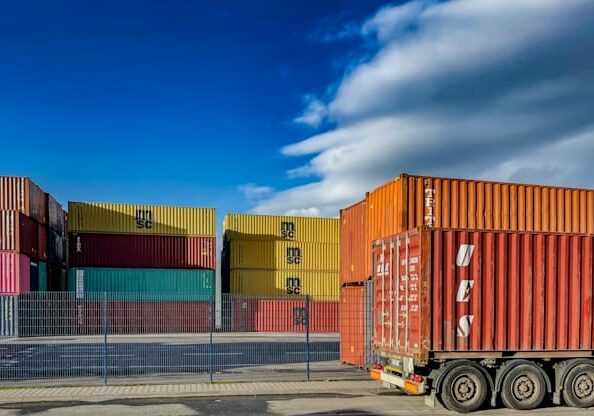Capitalism, characterized by private ownership and free markets, has shaped the economic landscapes of numerous countries. At the forefront are nations like the United States, renowned for its entrepreneurial spirit and minimal government intervention in business.
Similarly, Singapore exemplifies a market-driven economy with robust trade and investment frameworks. Despite political shifts, Hong Kong remains a bastion of economic freedom with its low taxes and free port trade. Meanwhile, Switzerland’s stable financial system and business-friendly policies attract global investments, showcasing the diverse yet pivotal role capitalism plays in fostering economic growth and innovation worldwide.
In this article, we’ll take a look at capitalism, examine its impact on innovation and economic development, address criticisms, and compare it with alternative systems.
What is Capitalism?
Capitalism is an economic system where private individuals or businesses own and operate the majority of enterprises with the primary goal of generating profit. It is characterized by free markets, competition, and minimal government intervention.
In a capitalist economy, the forces of supply and demand determine prices and the allocation of resources. This system incentivizes innovation, efficiency, and economic growth as businesses and individuals strive to maximize their economic benefits.
Capitalism is widely regarded as a driver of wealth creation and individual freedom, though it also faces criticism for contributing to economic inequality and fostering competitive, sometimes exploitative, practices.
Capitalist Countries Around the World
Capitalist countries around the world exemplify the principles of privately-held ownership and free markets. These nations, from the United States to Singapore, foster economic growth and innovation through minimal government intervention, competitive markets, and entrepreneurial spirit, showcasing diverse approaches to achieving prosperity and wealth creation in a global context.
According to the World Population Review, here is a top 10 list of capitalist countries, as measured by the Heritage Index of Economic Freedom:
Singapore
Singapore has a highly developed and free-market-oriented economy. It is known for its pro-business environment, low taxes, minimal corruption, and a robust legal framework. The country excels in financial services, manufacturing, and trade, benefiting from its strategic location and extensive port facilities, which make it a global commerce hub.
Switzerland
Switzerland has a diverse and prosperous economy with a strong emphasis on financial services, pharmaceuticals, and high-tech industries. It offers a stable political environment, excellent infrastructure, and a skilled workforce. The Swiss economy is characterized by high levels of innovation, strong protection of property rights, and minimal government intervention.
Ireland
Ireland, which has an excellent Golden Visa program, has a dynamic and open economy with a strong focus on high-tech, pharmaceuticals, and financial services. The country is well-known for its low corporate tax rates, attracting significant foreign direct investment. The economy benefits from a young and educated workforce, as well as strong trade connections within the European Union, which all contribute to its robust economic growth.
Taiwan
Taiwan’s economy is export-oriented and highly diversified, with a strong focus on electronics, machinery, and petrochemicals. It has a well-developed industrial base and a vibrant tech sector, notably in semiconductors. Taiwan’s economic policies emphasize trade liberalization, innovation, and investment in research and development.
New Zealand
New Zealand’s economy is driven by agricultural exports, tourism, and a rapidly expanding tech sector. It operates as a free-market economy with minimal government intervention, bolstered by strong property rights and a transparent regulatory framework. New Zealand is renowned for its business-friendly environment and top-notch infrastructure.
Estonia
Estonia has a dynamic digital economy with a strong emphasis on information technology and innovation. It has one of the most advanced e-governments in the world. The country has liberal trade policies, low taxes, and minimal regulation, which have fostered a favorable business environment and attracted significant foreign investment.
Luxembourg
Luxembourg has a small but highly prosperous and diversified economy. It heavily relies on financial services, which account for a significant portion of its GDP. The country is also a major hub for investment funds and banking. It benefits from political stability, strong legal protections, and an open, business-friendly environment.
Netherlands
The Netherlands features a highly developed and open economy with strong sectors in trade, transportation, agriculture, and manufacturing. Its strategic location makes it a critical gateway for goods entering Europe. The Dutch economy benefits from high levels of foreign direct investment, robust infrastructure, and a skilled workforce.
Denmark
Denmark’s economy is characterized by a mix of free-market capitalism and comprehensive welfare provisions. It has strong sectors in pharmaceuticals, maritime shipping, and renewable energy. The country offers a high degree of economic freedom, minimal corruption, and a robust legal framework, fostering a supportive business environment.
Sweden
Sweden has a highly developed, export-oriented economy with strong industries in manufacturing, technology, and pharmaceuticals. Known for its high standard of living and comprehensive welfare state, Sweden balances free-market policies with extensive social welfare programs. It excels in innovation, sustainability, and global competitiveness.
Isn't the US a capitalist country?
The United States is a capitalist country but is also considered a mixed market economy. This means it combines capitalist principles with government intervention and regulation.

However, it also embodies characteristics of a mixed market economy through government regulations that ensure fair competition, consumer protection, and environmental sustainability.
The US government provides essential public services such as education and healthcare through programs like Medicare and Medicaid, infrastructure, and social security.
Moreover, it engages in economic stabilization via fiscal and monetary policies to manage inflation, reduce unemployment, and stabilize the economy. This hybrid approach allows the US to harness the benefits of capitalism while addressing market failures and providing a safety net for its citizens.
Criticisms and Challenges of Capitalism
Capitalism, while praised for driving innovation and economic growth, faces several criticisms and challenges. Critics argue that it often leads to significant income and wealth inequality, as those with capital can accumulate more wealth, leaving others behind. This system can also result in the exploitation of workers, with businesses prioritizing profit over fair wages and working conditions.
Income and Wealth Inequality: Capitalism often leads to significant disparities in income and wealth, as those with capital can accumulate more, leaving others behind and exacerbating social and economic divides.
Worker Exploitation: The profit-driven nature of capitalism can result in the exploitation of workers, with businesses prioritizing profits over fair wages, safe working conditions, and job security.
Environmental Degradation: Capitalism can drive over-exploitation of natural resources and pollution, as businesses may prioritize short-term profits over long-term environmental sustainability.
Market Monopolies: The concentration of market power in the hands of a few large corporations can reduce competition, leading to higher prices, reduced innovation, and economic inefficiencies.
Consumerism and Materialism: Capitalism often promotes excessive consumerism and materialism, which can undermine social and cultural values, leading to a focus on wealth accumulation at the expense of overall well-being and community cohesion.
Capitalism vs. Other Economic Systems

Capitalism vs. Socialism: Socialism is an economic system where the government or the community as a whole owns and controls the means of production. Wealth and resources are distributed more equally among the population. This system aims to reduce inequality and provide essential services but can suffer from inefficiencies and reduced incentives for innovation.
Capitalism vs. Communism: Communism is a political and economic ideology where all property is publicly owned, and each person works and is paid according to their abilities and needs. The state controls all economic activities, aiming for a classless society. However, it often leads to a lack of personal freedoms, inefficiency, and government overreach.
Capitalism and Mixed Market Economy: A mixed economy combines elements of capitalism and socialism. It features private ownership and free markets, alongside significant government intervention to regulate the economy and provide public goods and services. This system aims to balance the efficiency and innovation of capitalism with the social welfare goals of socialism.
The Future of Capitalism

Economic crises such as recessions or financial market crashes often lead to increased regulation and oversight to prevent future instability. Environmental challenges, including climate change, have led to a push for sustainable business practices and green technologies, integrating environmental responsibility into capitalist frameworks.
Technological advancements such as automation and artificial intelligence are reshaping labor markets, necessitating new skills and potentially increasing inequality. This has driven discussions on social safety nets and universal basic income. Societal needs like healthcare and education require more inclusive policies to ensure broader access and equity.
Globalization impacts capitalism by creating interconnected economies, leading to both opportunities for growth and risks of economic contagion. Additionally, social movements advocating for diversity, equity, and inclusion influence corporate practices and priorities.
In response to these pressures, capitalism is evolving to incorporate more corporate social responsibility, ethical governance, and a focus on long-term sustainability over short-term profits, aiming to balance economic growth with societal well-being.
How Can Global Citizen Solutions Help You?
Global Citizen Solutions is a boutique migration consultancy firm with years of experience delivering bespoke residence and citizenship by investment solutions for international families. With offices worldwide and an experienced, hands-on team, we have helped hundreds of clients worldwide acquire citizenship, residence visas, or homes while diversifying their portfolios with robust investments.
We guide you from start to finish, taking you beyond your citizenship or residency by investment application.

FAQs
What is capitalism?
Capitalism is an economic system characterized by private ownership of businesses and resources, free markets, and profit-driven competition.
Which countries are considered the most capitalist?
The most capitalist nations are:
- Singapore
- Switzerland
- Ireland
- Taiwan
- New Zealand
- Estonia
- Luxembourg
- Netherlands
- Denmark
- Sweden
Are there capitalist countries in Africa?
Yes, there are capitalist countries in Africa, such as South Africa, Nigeria, Kenya, and Morocco, which have embraced market-oriented reforms and private enterprise.
What are some notable Western capitalist countries?
The list of capitalist countries in the West include the United States, United Kingdom, Canada, Australia, Ireland, and Switzerland, among others.
How does capitalism foster innovation and entrepreneurship?
Capitalism incentivizes individuals to innovate and take entrepreneurial risks by providing opportunities for wealth creation and market competition.
Does capitalism address income inequality?
Critics argue that capitalism can exacerbate income inequality, but proponents argue that it can also create opportunities for upward mobility and social progress.
Can capitalist countries regulate their economies?
Yes, capitalist countries use government regulation to varying degrees to ensure fair competition, protect consumers, and address market failures.
How does capitalism respond to supply and demand?
Capitalism relies on the forces of supply and demand to determine prices, production levels, and resource allocation through market mechanisms.
How has the COVID-19 pandemic impacted capitalism?
The pandemic has caused significant disruptions to global economies, testing the resilience of capitalism and leading to discussions about the need for economic reforms.
Is capitalism sustainable in the long term?
The sustainability of capitalism is a subject of ongoing debate. While some argue that its adaptability and innovation ensure long-term viability, others question its ability to address social and environmental challenges.



